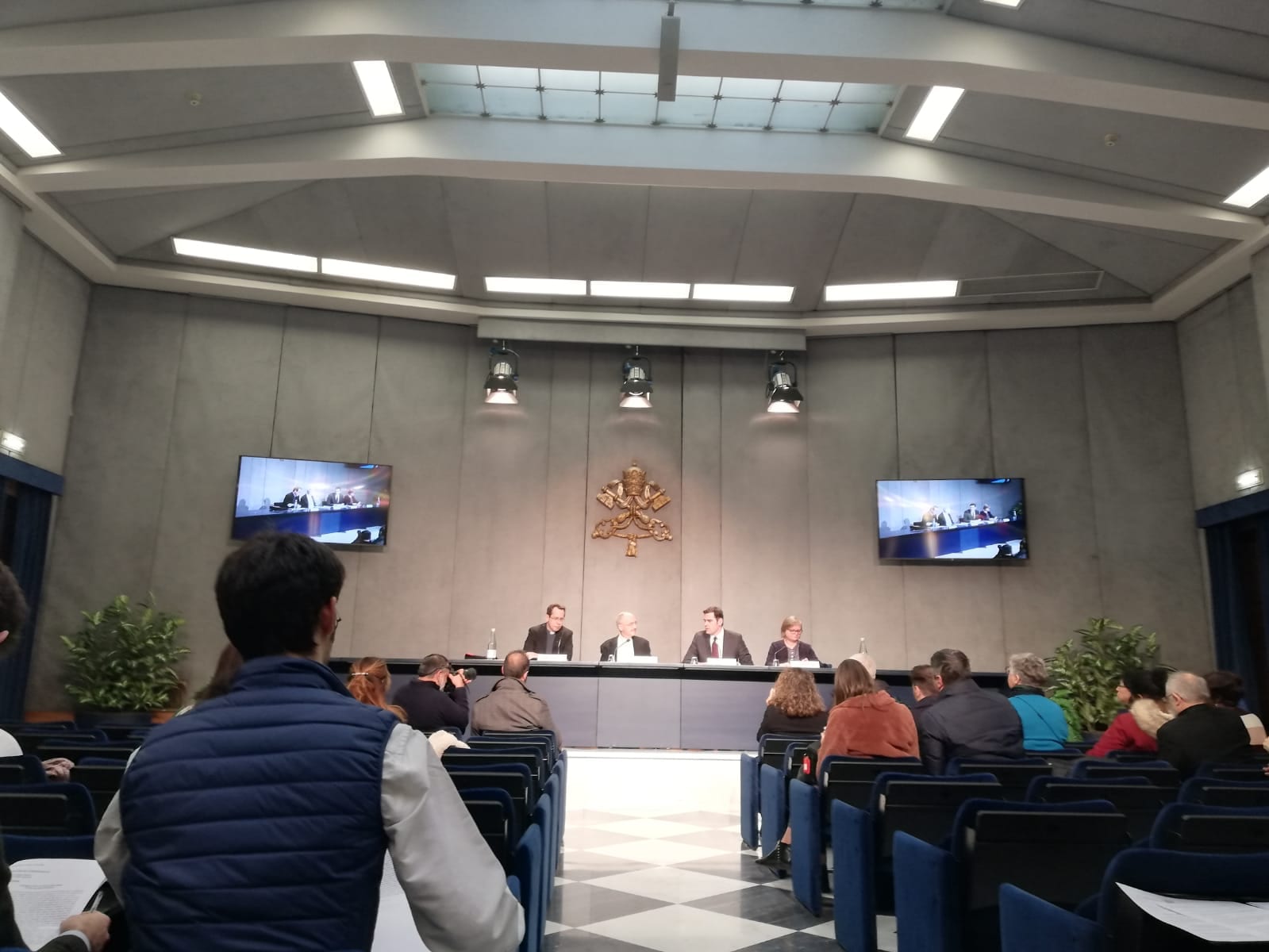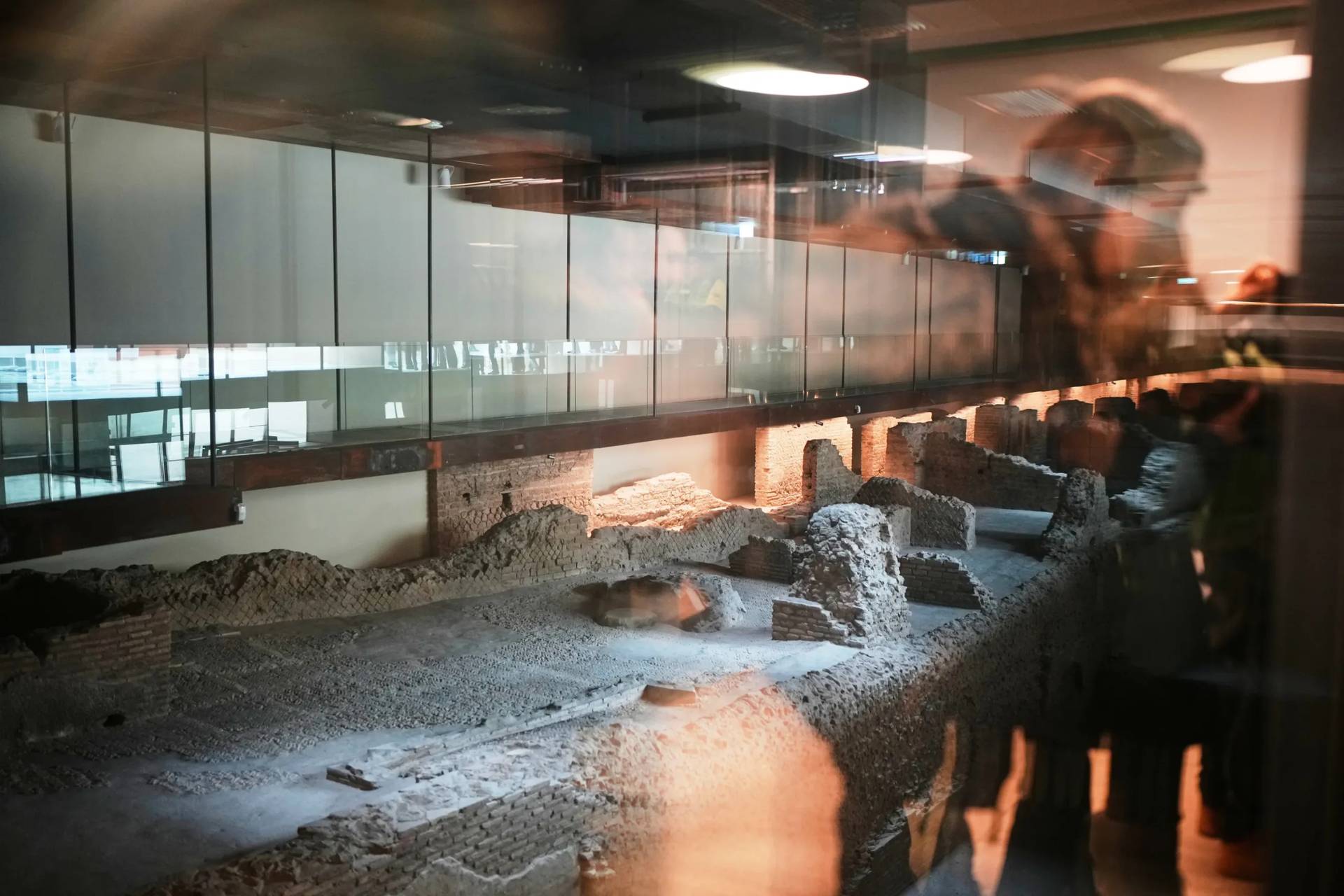ROME – On the feast day of St. Giuseppina Bakhita, who was kidnapped and sold at the age of seven, Pope Francis called the fifth World Day of Prayer and Reflection against Human Trafficking, encouraging everyone not to be complicit in modern-day slavery.
“Before this human tragedy, before such suffering, before the powerlessness and anguish of men, women and children who are victims of human trafficking and slavery, often in the context of migration, it’s a cry that comes from the heart, it’s a cry of prayer to the Lord,” said Father Fredric Fornos, international director of the pope’s Global Prayer Network, during a press conference at the Vatican Feb. 7.
Francis’s appeals addressing the plight of human trafficking have been a staple of his pontificate from the very beginning. During his weekly Angelus prayer at St. Peter’s Square on Jan. 20, Francis invited people to pray for those responsible for human trafficking and its many victims.
“For Francis, they are not numbers. They are names, faces, concrete stories, they are our brothers and sisters in humanity,” Fornos said. “We cannot be quiet if we don’t wish to sell our soul to the devil.”
The priest said Francis asked for a day of prayer against human trafficking after his papal visit to Dublin, Ireland, in August. Feb. 8 was set as the date, and the pope released a video of prayer intentions denouncing human trafficking.
“No one can wash their hands without being, in some way, an accomplice to this crime against humanity,” Francis says in his message. “Let us pray for a generous welcome for victims of human trafficking, of enforced prostitution, and of violence.”
The day of prayer was organized by the Union of Superiors General and the International Union of Superiors General, Rome-based groups for leaders of men’s and women’s religious orders respectively. Few groups are more committed to combating the plight of human trafficking than the religious of Talitha Kum, a global network created in 2009 to help trafficked victims.
The organization is currently present in 77 countries and offers 34 specialized courses for the creation of networks that enable members to fight human trafficking at many levels.
“It’s not by accident that the name chosen for this year’s day of prayer is ‘together against trafficking’,” explained Sister Gabriella Bottani, international coordinator at Talitha Kum, during the press event.
“Only through a concerted effort is it possible to address the challenges of human trafficking, to promote and reinforce dialogue and cooperation among the parties involved and counteract those who take advantage of the ‘dream’ of thousands of people who wish to better their life conditions,” she said.
The sister, who has faced the plight of human trafficking for over ten years, said it’s difficult to estimate the actual number of people being trafficked, but added it’s in the eyes of individuals who have found hope that she finds strength.
Father Michael Czerny, under-secretary of the migrant and refugee section of the Vatican’s Dicastery for Integral Human Development that answers directly to Francis, said that “the first to offer solidarity have been, and are, the sisters” who are “working quietly and quietly networking.”
Last month, the migrant and refugee section released its “Pastoral Guidelines on Human Trafficking,” which emphasized the importance of speaking up and denouncing the suffering of millions bought and sold for labor and exploitation.
Czerny underlined the importance of having victims relate their experiences and spread their message in order to raise awareness.
“Their testimony shows concretely what can be stolen from a human life for the pleasure and profit of others,” he said. “It is inconceivable until you hear a victim, a survivor, tell you how it happened.”
Rejoice was 13 when her mother sold her to a human trafficker. The young girl from Nigeria didn’t know the job that “Lucky” wanted to offer her in Spain was in the sex trade.
Rejoice spent a week in a Libyan detention center, where she was encouraged to lie about her age by her family before finally getting on a migrant vessel sailing toward Italy.
When the boat she was on, like many others that attempt to cross the perilous Mediterranean waters, broke in half, the young girl remembers “desperate cries for help and frantic movements” of its many passengers.
The girl finally arrived in Syracuse, a city on the southern Italian island of Sicily, where she was exposed to lay people and religious sisters who attempted to help her and encouraged her to resist her own mother’s repeated appeals to prostitute herself.
“Now everything is good,” she said. “The sisters are the only ones who give me hope.”
Rejoice, now 19, lives in Catania in southern Italy and hopes to become a doctor. Despite the trials she had to face, she said she never capitulated to those who would have taken advantage of her and kept her faith in God.
Francis has underscored the fact that human trafficking is closely tied to migration, with many of those attempting to find happiness elsewhere being trapped, indebted or deceived into becoming slaves.
“If one watches the video thinking about and praying for Libya, it’s intentional,” Czerny said, referring to internment camps for immigrants in the country, “because it’s a situation that requires very intense prayer.”
















